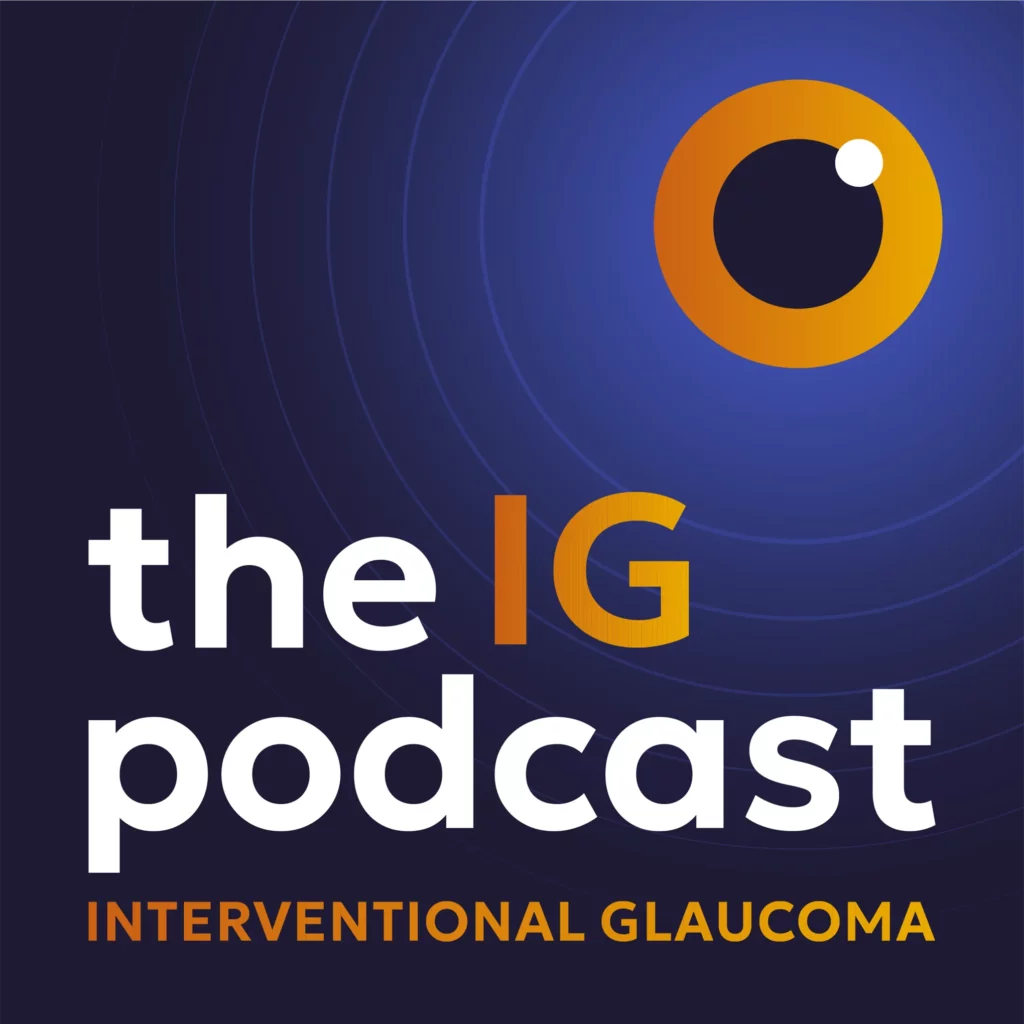In this episode of the Interventional Glaucoma podcast, Dr. Karl Mercieca, Dr. Gok Ratnarajan, and Dr. Ana Miguel discuss the future of glaucoma management, emphasising the potential of minimally invasive glaucoma surgery (MIGS) to improve patients’ quality of life and treatment outcomes
The Interventional Glaucoma Podcast
Episode 10: Glaucoma Management Five Years From Now
- 5 November 2024
Key Takeaways
- Global burden of glaucoma: Glaucoma is a significant global health issue with rising prevalence. Predicted to affect 111 million people by 2040,[1] this highlights the importance of early detection and treatment to mitigate both visual impairment and economic cost.
- Challenges in glaucoma care: Many patients with glaucoma remain undiagnosed worldwide. As an asymptomatic disease, glaucoma often goes unnoticed until symptoms appear, making early diagnosis crucial for effective management.
- Patient education and empowerment: Increasing patient awareness about glaucoma’s silent progression is crucial. Educated patients are more proactive in seeking regular check-ups and understanding treatment options.
- Patient-Centric Care: Patient expectations are evolving with increased access to information. Clinicians must balance patient demands with evidence-based treatment recommendations to ensure optimal outcomes and patient satisfaction.
- Advantages of MIGS: The availability of MIGS, such as trabecular meshwork procedures offered by Elios, presents less invasive options that enable earlier intervention through surgical means. These procedures are noted for their enhanced safety profile and effectiveness in reducing the need for eye drops.
- Improvement in quality of life: While trabeculotomy will always play a crucial role in glaucoma management, the early post-operative recovery of MIGS, along with the reduction of eye drops, appears to positively impact patients’ confidence, demeanour, and overall outlook on life.[2]
[1] Global Prevalence of Glaucoma and Projections of Glaucoma Burden through 2040
[2] Quality of Life After Combined Cataract and Minimally Invasive Glaucoma Surgery in Glaucoma Patients
Guests

Dr. Karl Mercieca
Dr. Karl Mercieca is a consultant Opthalmic Surgeon and Glaucoma specialist at the Manchester Royal Eye Hospital. He has more than 50 publications and has received several research prizes including best poster prize at the American Academy of Ophthalmology Congress and the Peter Watson medal for joint highest score in the FEBOS-GL glaucoma sub-specialty exam. His portfolio includes studies on CSF pulsatility and vascular biomarkers, non-penetrating glaucoma surgery, uveitic glaucoma, and mobile technology for harnessing glaucoma service delivery.

Mr Gok Ratnarajan
Mr. Gok Ratnarajan is the Director of the Glaucoma Service at Queen Victoria Hospital and a Consultant Ophthalmic Surgeon specialising in Cataract, Glaucoma and Anterior Segment Reconstructive Surgery. He is one of the few surgeons worldwide fellowship-trained in glaucoma, complex cataract, and anterior segment reconstructive surgery.

Dr Ana Miguel
Dr. Ana Miguel is the first surgeon in Normandy and Brittany to perform XEN minimally invasive glaucoma surgery (MIGS) since 2018. She is an Ophthalmologist at Polyclinique de la Baie and is a leading clinical researcher in glaucoma with over 23 publications.
Additional Resources
Follow Dr. Karl Mercieca on Social:
Dr. Karl Mercieca | LinkedIn
Follow Mr Gok Ratnarajan on Social:
Mr Gok Ratnarajan | LinkedIn
Follow Dr Ana Miguel on Social:
Dr Ana Miguel | LinkedIn
Episode 14: Managing Expectations: What really matters to patients
In this episode, Professor Ike Ahmed welcomes Dr. Ticiana de Francesco, Dr. Nathan Radcliffe, and Dr. Mark Gallardo to discuss goal setting in interventional glaucoma care.
Episode 13: ELIOS – What I learned from my first 100 cases (Part 2)
In this second episode of a special two-part series on the Interventional Glaucoma Podcast, host Gok Ratnarajan is joined by Anselm Juenemann, Dan Lindfield, Jose Belda, and Nils Loewen to
Episode 13: ELIOS – What I learned from my first 100 cases? Part 1
In this first episode of the special two-episode series of the Interventional Glaucoma podcast, host Gok Ratnarajan is joined by esteemed guests Anselm Juenemann, Dan Lindfield, Jose Belda, and Nils
